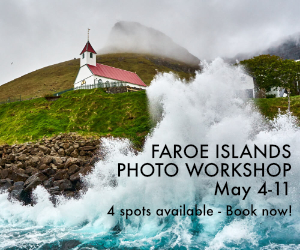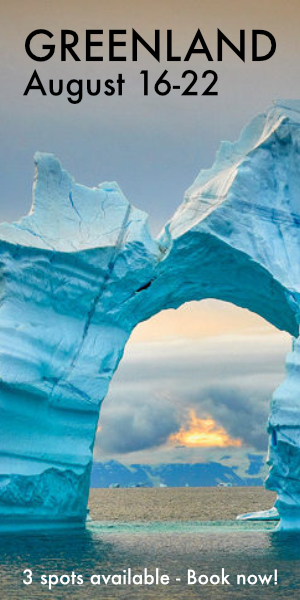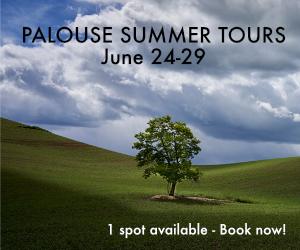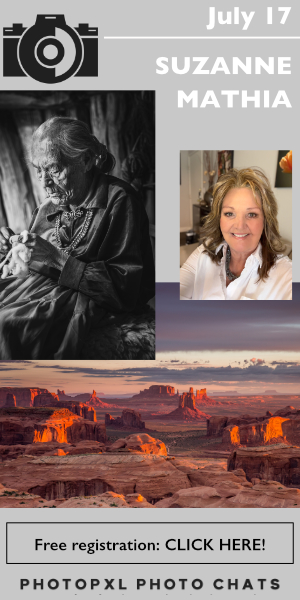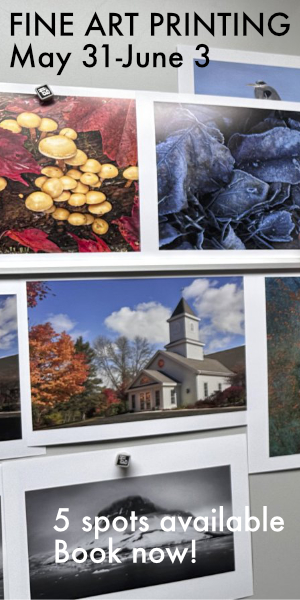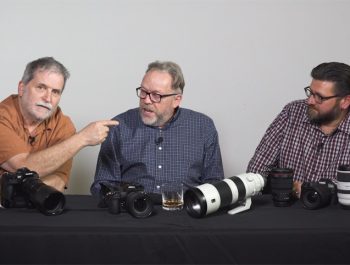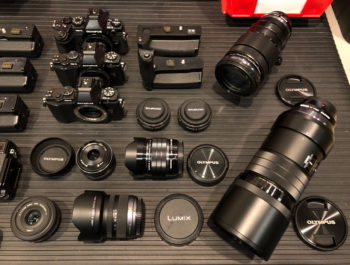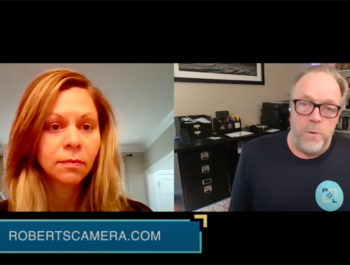The Minimalist Photographer: Why Gear Isn’t Everything
Why Gear Isn’t Everything
As someone who’s practiced photography for a while, I can safely say that while up-to-date gear is exciting, taking photographs only requires a few tools.
If you have a camera, then you can take a photo—and that’s where every amateur and professional photographer begins.
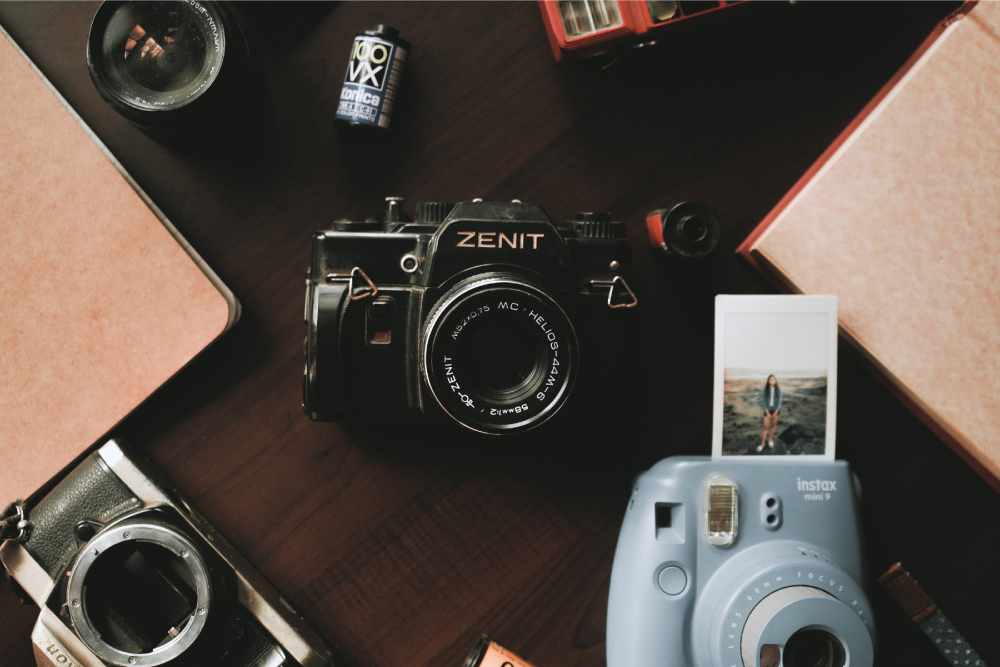
These days, people use digital cameras or even phone cameras, but others are returning to the medium of film. Depending on whether you go for a DSLR or an analog camera, your needs will be slightly different. But in both cases, it’s possible to build up an impressive body of work while having fun and gaining valuable experience—an achievable goal even with the most basic of cameras and lenses.
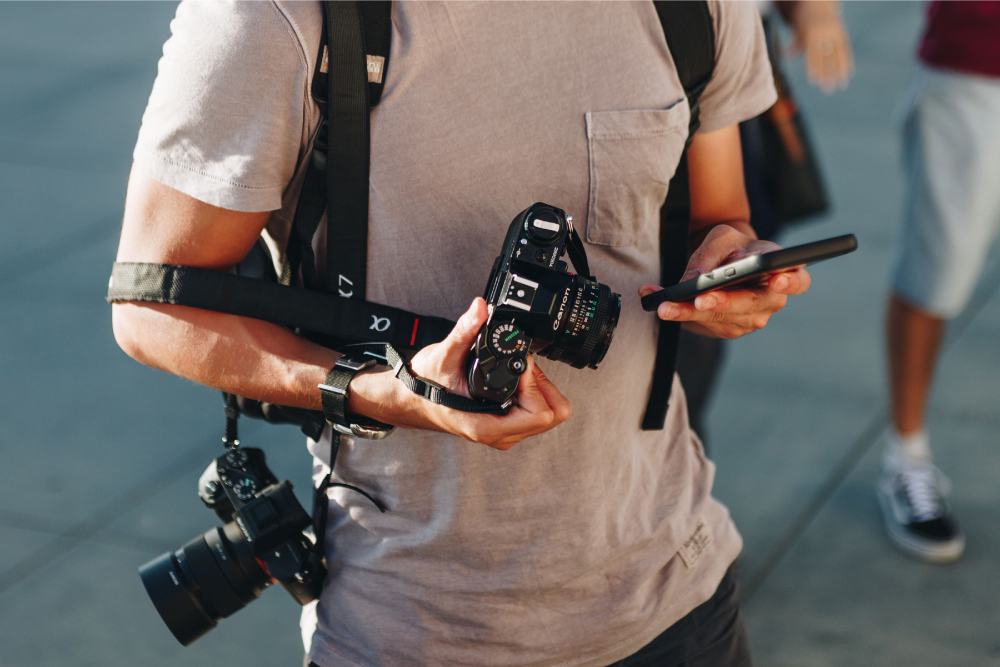
The Basics
Why do you take photographs? What kind of photographs do you want to take? I take photos because I want to capture what I see. Not just a visual replica of a scene, but an impression of what I see in my mind’s eye.
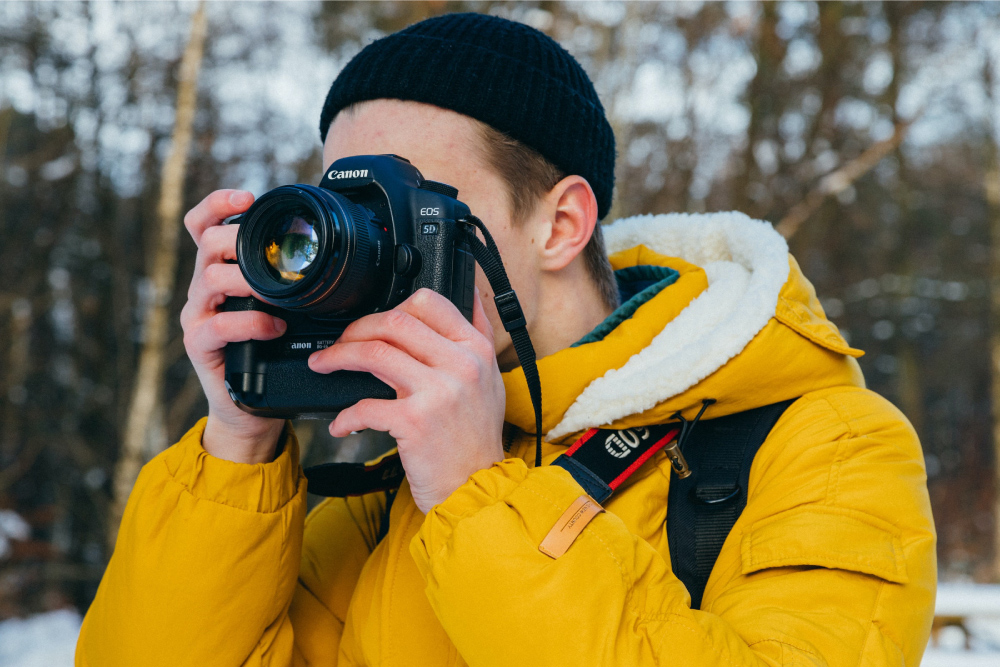
I’ve had paid gigs, entered competitions, and spent hours walking the streets in search of a story to tell. At first, I didn’t have the fanciest gear, and if I had, I wouldn’t have known how to use it. I started out with an entry-level Canon DSLR with an 18-55mm lens, a Nikkormat FTN, and a Lomo LC-A. At times, I even found it harder to navigate digital than film. This was how I learned.
Stepping Up
Of course, you’ll need some extra gear if you’re a professional photographer, but this also depends on your field of expertise. For instance, most photographers need a tripod. If you’re not planning to shoot at night or in low light, you might get away without one. However, you’ll need some stabilization if you’re shooting at speeds under about 1/30 or 1/15, unless your hands are incredibly steady.
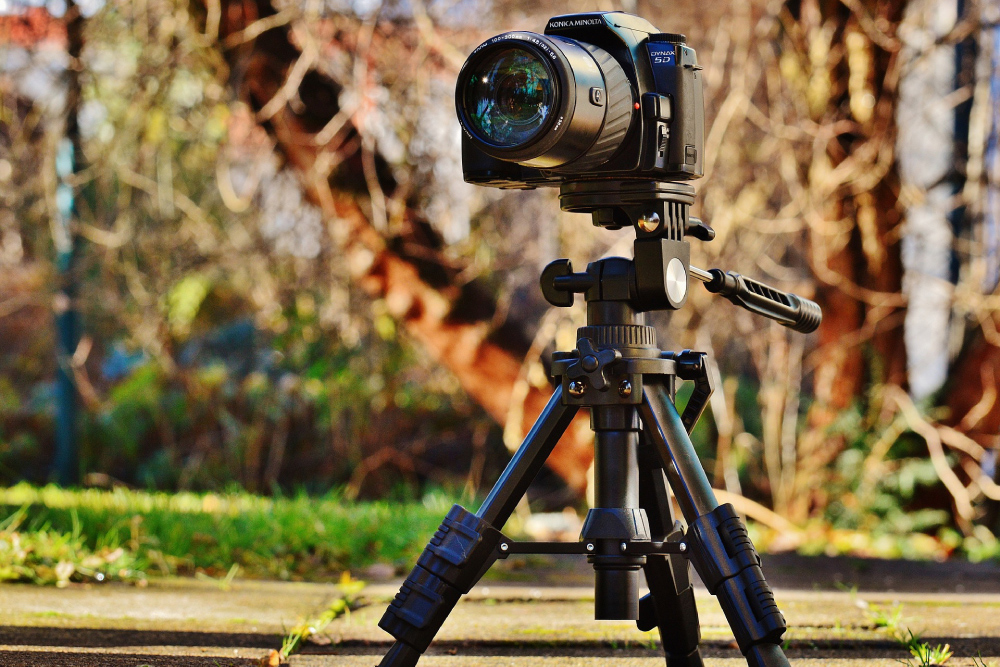
If you’re looking for some blur, though, a tripod isn’t necessary. Purchasing a tripod also doesn’t need to break the bank.
Lenses
One of the fun aspects of photography is trying different lenses and enjoying all the different effects they produce. A professional sports photographer needs a lens with excellent zoom, fast shutter speeds, and better focus fall-off.
If you aren’t in the business of selling photos to agencies or publications, it’s not as important to have specialized lenses. And, in a way, being limited to a couple of basic lenses can train your eye.
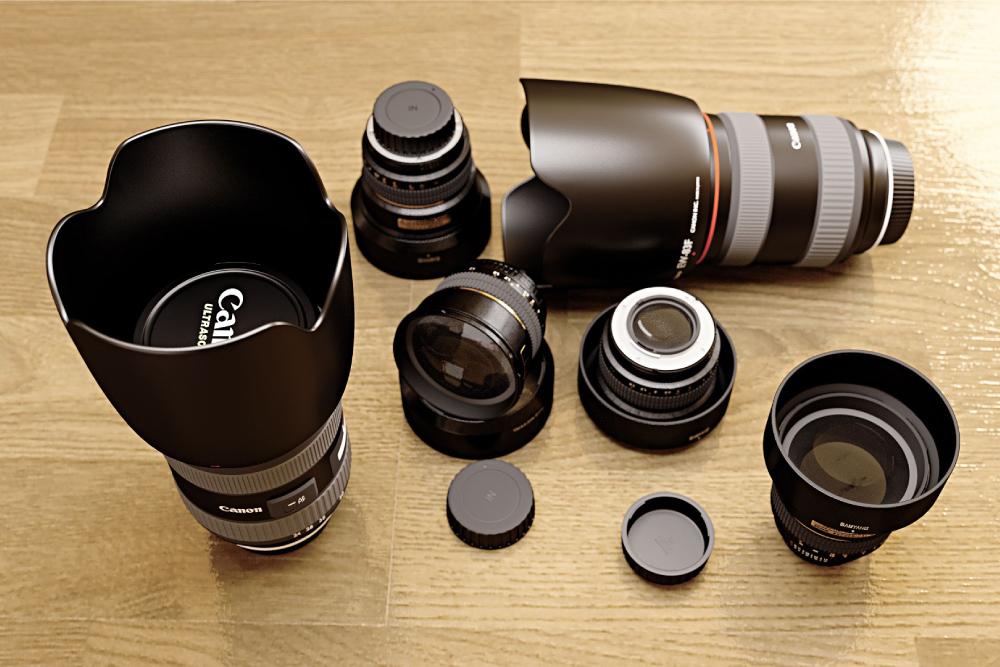
With my 18-55mm Canon lens and Nikkor 55mm f/1.2, I was able to shoot fairly decent portraits, landscapes, and still life scenes—not quite professional standard, but good enough. Manual focusing with the Nikkormat could be tough if I wanted to capture a moving subject, but when I nailed the shot, it was incredibly satisfying. My Canon had quite a shutter lag—which was annoying—but it also served as a brilliant teacher.
The bottom line is that when you’re starting out, you don’t need a fancy lens. In fact, practicing with what you’ve got is an excellent way to gain experience and train your eye.
Lighting
Photographers have to become accustomed to shooting in many different lights, from ambient light to fluorescent. As always, a professional might need more advanced equipment, but learning to shoot in different lighting conditions is valuable and can result in brilliant captures. It may not be the same as if you were using the latest gear, but it’s often unique and aesthetically interesting.
“Interesting,” in this case, is not a euphemism for awful. If you truly count yourself as a minimalist photographer, individuality will be as important as chasing the most rigid replica of reality. Minimalism in photography can be all about simplicity in each image and relying on the gear you have, not the gear you want.
Aperture
Speaking of lighting, becoming an expert of aperture is a skill that doesn’t require any additional gear.
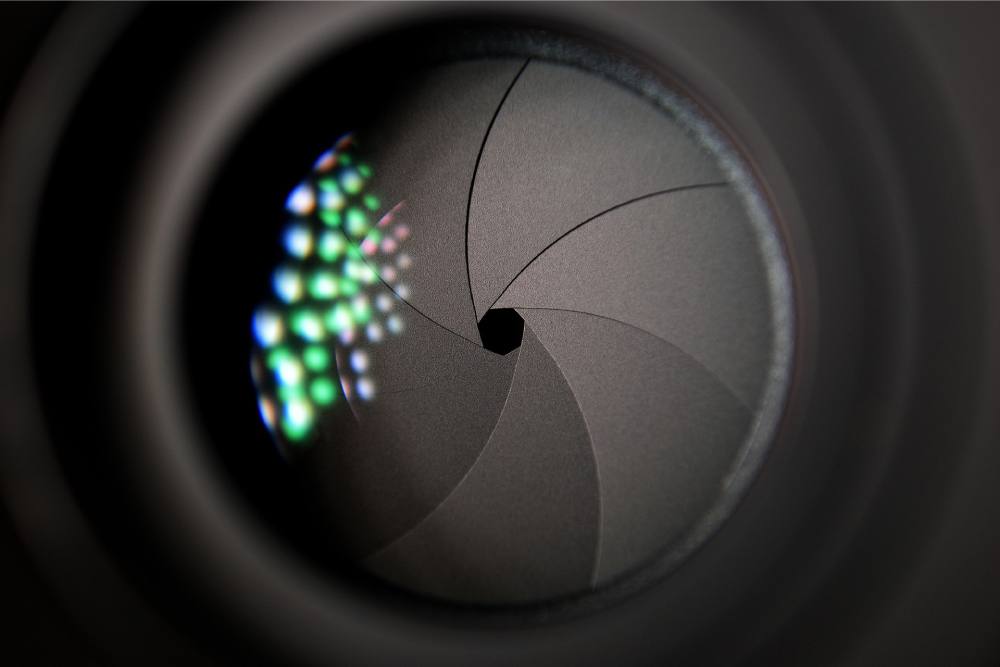
Increase your f/stop if you’re in the and decrease it if you’re in dim lighting. These different settings will result in unique representations of the scene you’re shooting, and can create distinct aesthetics and feelings. A single lens gives you a range of apertures, and each f/stop demands a slightly different approach.
Know Yourself
It’s important to evaluate your goals in photography. Knowing what you want to capture, what you’d prefer to showcase in your online portfolio, and which niche you want to focus on is important.
If your ambition is to become a sports photographer covering international tournaments, it’s unlikely that you’ll get there without specialized lenses and other equipment. If you want to shoot weddings, having lighting gear and a wide variety of lenses will win the respect of your clients.
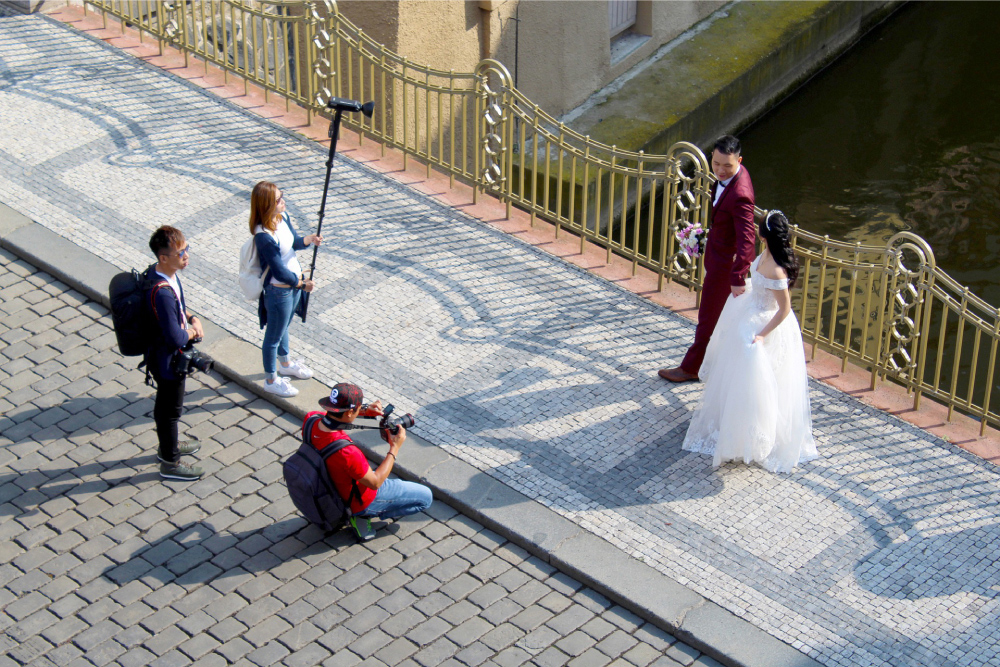
In both instances, however, innovative equipment can’t make up for a solid foundation of learning the basics. Building advanced skills demands that you first master the fundamentals, which means working with what you have.
Capture What You See, How You See It
Of course, collecting the latest gear isn’t a prerequisite to practicing photography. The best photographs aren’t necessarily the ones taken with high-end cameras and lenses. Playing with focus, color, light, and movement is something you can do with any camera.
Often the most exceptional photos are ones that convey an emotion or tell a story, capturing a moment that is otherwise lost.
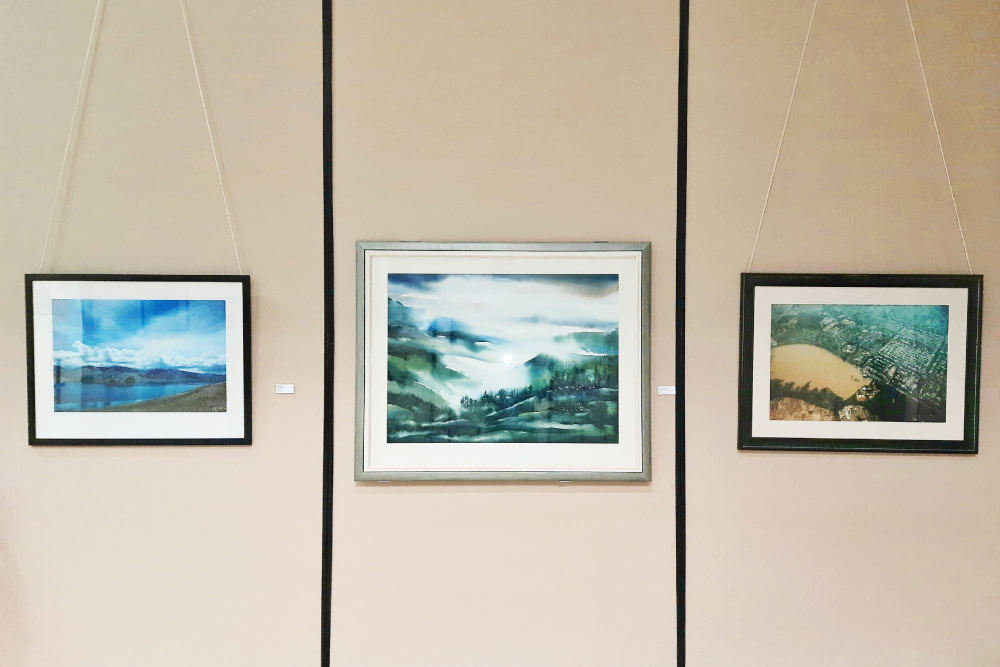
To achieve that, personal vision and engagement with your subject are far more important than using the most up-to-date equipment. Specialized gear can make the job easier, but it won’t bridge the gap between photographer and subject. For that, you need your vision and a deeper understanding of what you’re trying to portray.
What’s Your Real Focus?
When you’re getting into photography, it can be tempting to splurge on new gear and try to upgrade your photos by using an array of equipment. But you’d be better off developing an individual style and refining your vision.
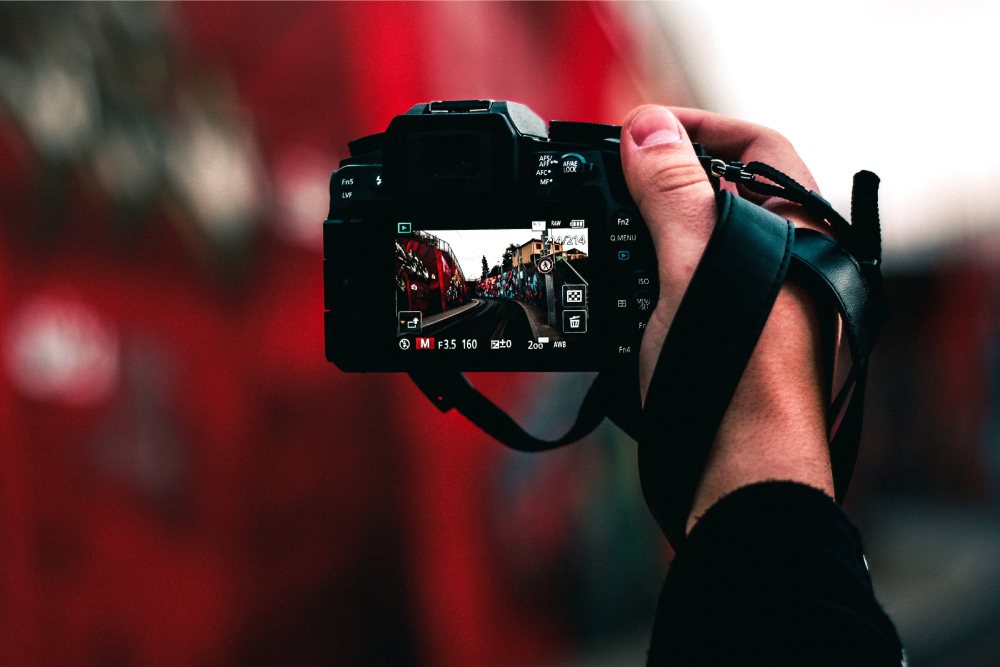
When working with the most up-to-date gadgets, your focus can divert to the vast selection of settings, promising a perfect image and distracting you from really seeing what’s happening before you. If you’re handling expensive cameras, lenses, and lighting, you run the risk of missing the very essence of what you’re trying to capture.
Carmen Docampo
May 2021
Orlando, Florida
With a background in photo editing and as a hobby photographer, Carmen writes for various photography outlets. She spends her free time enjoying the outdoors and discovering new hiking trails.

